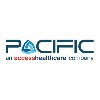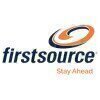Senior AR Caller
80+ Senior AR Caller Interview Questions and Answers

Asked in GeBBS Healthcare Solutions

Q. If your break/meal time is 15/30 minutes and you exceed it, what will you do?
I will ensure to manage my time efficiently during breaks and meals to avoid exceeding the allocated time.
I will prioritize my tasks and plan my breaks accordingly to ensure I stay within the allocated time.
If I do happen to exceed the break time, I will make sure to inform my supervisor and adjust my schedule to make up for the lost time.
I will also try to identify any reasons for the delay and work on improving my time management skills to prevent it from happening again.
Asked in GMM Billing Solutions

Q. CMS1500 form's field and it's uses. (Especially BOX# 12,13,27 & 23)
CMS1500 form fields and their uses, including BOX# 12,13,27 & 23.
CMS1500 is a standard form used for submitting medical claims.
BOX# 12 is used for indicating the patient's signature authorization.
BOX# 13 is used for indicating the patient's signature date.
BOX# 27 is used for indicating the provider's billing location.
BOX# 23 is used for indicating the prior authorization number, if applicable.
Senior AR Caller Interview Questions and Answers for Freshers

Asked in GeBBS Healthcare Solutions

Q. How will you manage breaks if they are not given on demand?
I will prioritize breaks during slower periods and communicate with team members to ensure coverage.
Prioritize breaks during slower periods to minimize impact on workflow
Communicate with team members to coordinate break times and ensure coverage
Plan ahead and schedule breaks accordingly to avoid disruptions
Utilize tools like shift scheduling software to manage breaks efficiently

Asked in Pacific BPO

Q. How do you handle authorization cases?
Handling authorization cases in AR calling
Verify the patient's insurance coverage and benefits
Obtain necessary authorizations from insurance companies
Document all communication and authorization details
Follow up with insurance companies to ensure timely approvals
Educate patients on their financial responsibilities and options
Escalate unresolved authorization issues to supervisors or managers
Asked in GMM Billing Solutions

Q. Explain denial scenarios and their corresponding workflows.
Denial scenarios occur when a claim is rejected by the insurance company. It can happen due to various reasons.
Denial due to incorrect patient information
Denial due to lack of medical necessity
Denial due to coding errors
Denial due to timely filing limits
Denial due to non-covered services
Denial due to duplicate billing

Asked in Nyx Solutions

Q. What are the most common medical billing denials, and how do you effectively handle the process?
Understanding common medical billing denials and effective handling strategies is crucial for AR callers.
1. Eligibility Denials: Verify patient eligibility before services. Example: A patient may be denied for services not covered by their plan.
2. Authorization Denials: Ensure prior authorization is obtained for specific procedures. Example: A surgery may require pre-approval.
3. Coding Errors: Double-check codes for accuracy. Example: Incorrect CPT codes can lead to denials; ...read more
Senior AR Caller Jobs




Asked in Pacific BPO

Q. What is Authorization and how should we get it from insurances. If auth is denied what would be your next steps.
Authorization is the process of obtaining approval from insurance for medical services. Denials require prompt follow-up actions.
Authorization is a pre-approval process by insurance companies to ensure medical necessity.
To obtain authorization, submit a request with patient details, procedure codes, and clinical documentation.
Example: For a surgery, provide the patient's medical history and the necessity of the procedure.
If authorization is denied, review the denial reason, g...read more

Asked in Omega Healthcare

Q. What is COBRA and Explain COBRA?
COBRA is a federal law that allows employees to continue their health insurance coverage after leaving their job.
COBRA stands for Consolidated Omnibus Budget Reconciliation Act.
It applies to companies with 20 or more employees.
Employees can continue their health insurance coverage for up to 18 months after leaving their job.
The employee is responsible for paying the full premium, including the portion previously paid by the employer.
COBRA also applies to dependents of the emp...read more
Share interview questions and help millions of jobseekers 🌟


Asked in Omega Healthcare

Q. What is Frequency Denial?
Frequency denial is when an insurance company denies payment for a medical service due to exceeding the allowed number of times it can be performed within a specific time period.
Frequency denial occurs when an insurance company determines that a specific medical service has been performed too frequently within a given time frame.
It is a denial of payment for a service that exceeds the allowed number of times it can be performed within a specific period.
Insurance companies set...read more

Asked in AGS Health

Q. What is your typing skill level and knowledge regarding typing techniques?
I possess advanced typing skills, proficient in touch typing and various typing techniques for efficiency and accuracy.
I can type at a speed of 75 words per minute with high accuracy.
I utilize touch typing techniques, allowing me to type without looking at the keyboard.
I am familiar with typing software like Typing.com and Keybr.com for practice and improvement.
I understand the importance of proper hand positioning and posture to prevent strain during long typing sessions.
I h...read more

Asked in Calpion Software Technologies

Q. Previous worked companies? What are the worked softwares?
I have worked in XYZ and ABC companies. Worked on softwares like A, B, and C.
Worked in XYZ and ABC companies
Experienced in using softwares like A, B, and C
Proficient in using various billing and coding software
Familiar with medical terminology and HIPAA regulations

Asked in Amvik Solutions

Q. What does CPT stand for, and what does it refer to?
CPT stands for Current Procedural Terminology, used for coding medical procedures and services.
CPT codes are used by healthcare providers to bill for services.
There are three categories of CPT codes: Category I (procedures), Category II (performance measures), and Category III (emerging technologies).
Example: A CPT code for a routine office visit is 99213.
CPT codes are maintained by the American Medical Association (AMA).

Asked in R1 RCM

Q. What is your fundamental understanding of the Revenue Cycle Management (RCM) cycle?
Revenue Cycle Management (RCM) is the financial process of managing claims, payments, and revenue generation in healthcare.
Patient Registration: Collecting patient information and insurance details at the time of service.
Eligibility Verification: Confirming patient insurance coverage and benefits before services are rendered.
Charge Capture: Documenting services provided to ensure accurate billing.
Claims Submission: Sending claims to insurance companies for reimbursement.
Payme...read more

Asked in Pacific BPO

Q. How many columns are in CMS 100?
CMS 100 is a medical claim form used for billing purposes.
CMS 100 has 33 columns
It includes patient information, provider information, and billing codes
Some of the columns include patient name, date of birth, diagnosis codes, and procedure codes

Asked in Access Healthcare

Q. What do you know about the RCM cycle?
RCM cycle stands for Revenue Cycle Management cycle, which is the process of managing claims, payments, and revenue generation in the healthcare industry.
RCM cycle involves patient registration, insurance verification, charge capture, claim submission, payment posting, denial management, and reporting.
It ensures that healthcare providers are properly reimbursed for their services.
For example, a medical billing company may handle the RCM cycle for a hospital to ensure timely a...read more

Asked in RND Softech

Q. What are the types of denials and further denial charges?
Denials can be categorized as hard denials and soft denials, with further denial charges being incurred for repeated denials.
Types of denials include eligibility denials, coding denials, and timely filing denials.
Hard denials are denials that are not eligible for resubmission, while soft denials can be corrected and resubmitted.
Further denial charges may be incurred for repeated denials due to lack of documentation or incorrect coding.
Examples of further denial charges includ...read more
Asked in GMM Billing Solutions

Q. What denial scenarios are you familiar with?
Denial scenarios familiar to Senior AR Caller
Missing or invalid information on claim form
Service not covered by patient's insurance plan
Lack of medical necessity for the service
Duplicate claim submitted
Timely filing limit exceeded
Coordination of benefits issue
Pre-existing condition exclusion
Out-of-network provider
Claim submitted to wrong insurance carrier

Asked in Pacific BPO

Q. What are Deductible, Co-payment, and Coinsurance amounts in patient insurance plans?
Deductibles, co-payments, and coinsurance are key components of patient insurance plans that affect out-of-pocket costs.
Deductible: The amount a patient must pay out-of-pocket before insurance starts covering costs. Example: $1,000 deductible means you pay the first $1,000.
Co-payment: A fixed amount paid by the patient for a specific service, usually at the time of service. Example: $20 co-pay for a doctor's visit.
Coinsurance: The percentage of costs a patient pays after the ...read more

Asked in R1 RCM

Q. What is your understanding of percentages and averages in mathematics?
Percentages represent a part of a whole, while averages summarize data points to find a central value.
A percentage is a fraction expressed as a part of 100. For example, 25% means 25 out of 100.
To calculate a percentage, use the formula: (part/whole) * 100. For instance, if 30 out of 200 students passed, the percentage is (30/200) * 100 = 15%.
An average, or mean, is calculated by adding all values and dividing by the number of values. For example, the average of 2, 4, and 6 i...read more
Asked in Bharat Sevak Samaj

Q. How to obtain quickly in the sector manner?
To obtain quickly in the sector manner, one should focus on improving productivity and efficiency.
Identify and eliminate bottlenecks in the process
Implement automation and technology to streamline tasks
Train and develop employees to improve skills and knowledge
Establish clear communication channels and set realistic goals
Regularly review and analyze performance metrics to identify areas for improvement

Asked in Amvik Solutions

Q. What are the common causes of diagnostic coding errors?
Diagnostic coding errors often stem from misinterpretation, lack of training, and insufficient documentation.
Misinterpretation of clinical documentation: Coders may misunderstand a physician's notes, leading to incorrect codes.
Inadequate training: New coders may not be familiar with the latest coding guidelines, resulting in errors.
Insufficient documentation: Lack of detailed patient records can lead to incomplete or inaccurate coding.
Use of outdated codes: Coders may inadver...read more

Asked in Calpion Software Technologies

Q. What are some cities located on the seashore?
Seashore cities are cities located on the coast of a sea or ocean.
Seashore cities are popular tourist destinations due to their beaches and ocean views.
Some famous seashore cities include Miami, Rio de Janeiro, Sydney, and Barcelona.
Seashore cities often have a strong maritime culture and economy.
These cities may also be vulnerable to natural disasters such as hurricanes and tsunamis.
Living in a seashore city can provide opportunities for water sports and activities such as s...read more

Asked in R1 RCM

Q. Prepare scenarios covering authorization, duplicates, and inclusivity.
Understanding scenarios in accounts receivable calls enhances efficiency and accuracy in resolving issues.
Authorization Issues: Verify if the service was pre-approved by the insurance provider.
Duplicate Claims: Identify if a claim has been submitted more than once, leading to payment delays.
Inclusive Services: Ensure all services rendered are covered under the patient's insurance plan.

Asked in Getix Health

Q. Explain why authorization is required.
Authorization is required to ensure that services provided are covered by the patient's insurance and to prevent fraud.
Authorization ensures that services provided are covered by the patient's insurance plan.
It helps prevent fraud by verifying that the services rendered are necessary and appropriate.
Authorization may be needed for certain procedures, tests, or treatments before they can be performed.
Insurance companies require authorization to control costs and ensure proper ...read more

Asked in AGS Health

Q. What can you tell me about medical billing?
Medical billing is the process of submitting and following up on claims with health insurance companies to receive payment for services.
Medical billing involves coding diagnoses and procedures using standardized codes like ICD-10 and CPT.
Billers must verify patient insurance coverage and eligibility before services are rendered.
Claims are submitted electronically or via paper to insurance companies for reimbursement.
Follow-up on unpaid claims is crucial; billers may need to a...read more

Asked in RND Softech

Q. What are modifier and CPT procedure codes?
Modifiers are used to provide additional information about a procedure or service performed, while CPT codes are numeric codes used to describe medical, surgical, and diagnostic services.
Modifiers are two-digit codes added to CPT codes to indicate that a service or procedure has been altered in some way
Modifiers can affect reimbursement, denials, and audits
Examples of modifiers include -25 (significant, separately identifiable evaluation and management service by the same phy...read more
Asked in HealthRecon Connect

Q. Do you have experience in claims adjudication?
Yes, I have extensive experience in claims adjudication, particularly in the healthcare sector.
Managed the review and processing of medical claims, ensuring compliance with policies.
Utilized software systems to analyze claims data and identify discrepancies.
Collaborated with healthcare providers to resolve claim disputes and ensure timely payments.
Conducted audits on claims to ensure accuracy and adherence to regulations.

Asked in Centaur Billing

Q. What is FQHC?
FQHCs are community-based health centers providing comprehensive services to underserved populations, funded by federal grants.
FQHC stands for Federally Qualified Health Center.
They provide primary care services regardless of patients' ability to pay.
FQHCs receive federal funding to enhance service delivery.
They must meet specific criteria, including serving a designated medically underserved area.
Examples include community health centers and migrant health centers.

Asked in RND Softech

Q. What are the two types of modifiers?
The two types of modifiers are descriptive and non-descriptive.
Descriptive modifiers provide additional information about a service or procedure, such as location, time, or method (e.g. bilateral, multiple)
Non-descriptive modifiers indicate that a service or procedure has been altered in some way, such as for a specific reason or to indicate a special circumstance (e.g. -22, -LT)

Asked in Guidehouse

Q. What is the difference between authorization and referral?
Authorization is obtaining permission from an insurance company to provide a specific service, while referral is a recommendation from a primary care physician to see a specialist.
Authorization is required for certain medical services or procedures to ensure coverage by insurance.
Referral is a process where a primary care physician recommends a patient to see a specialist for further evaluation or treatment.
Authorization is obtained by the healthcare provider from the insuran...read more
Interview Questions of Similar Designations
Interview Experiences of Popular Companies








Reviews
Interviews
Salaries
Users
















